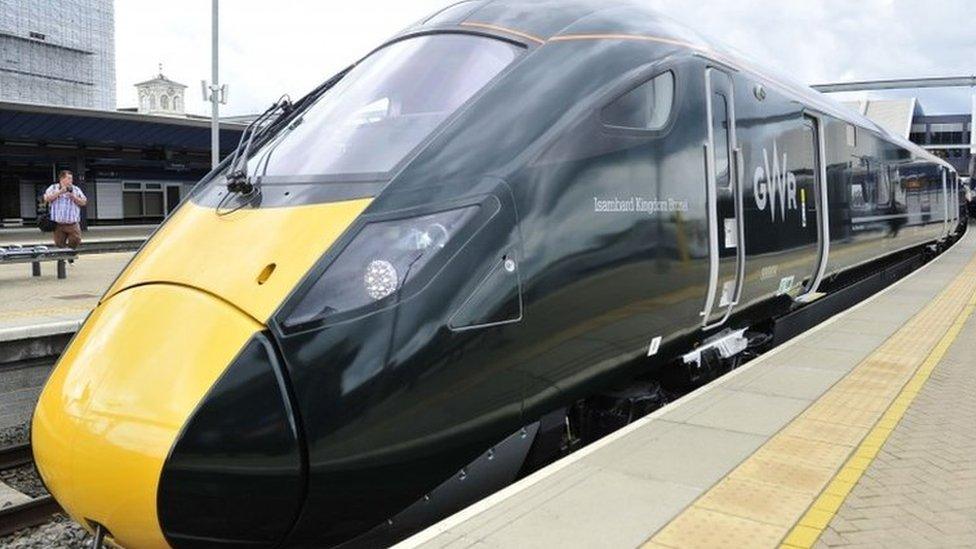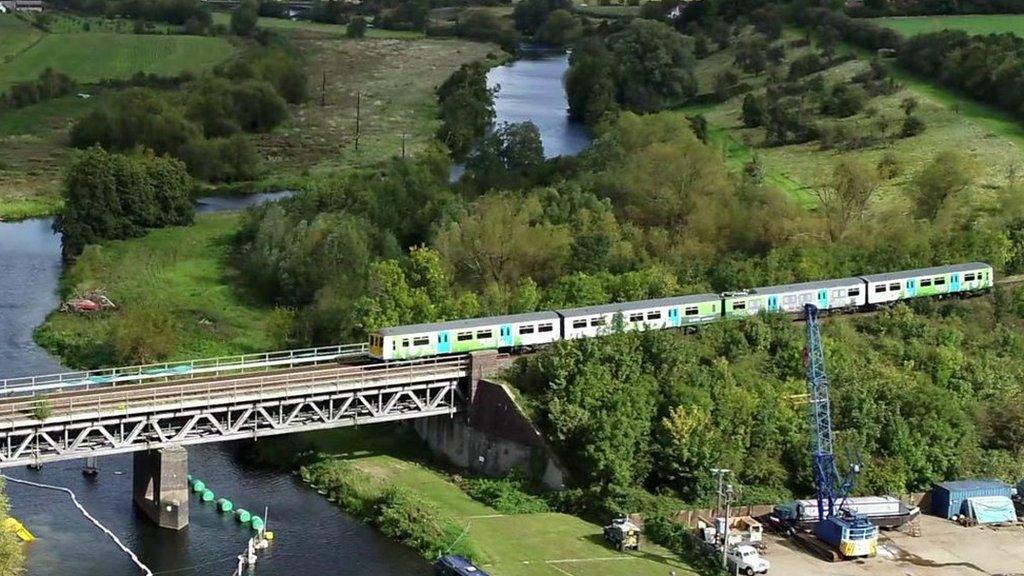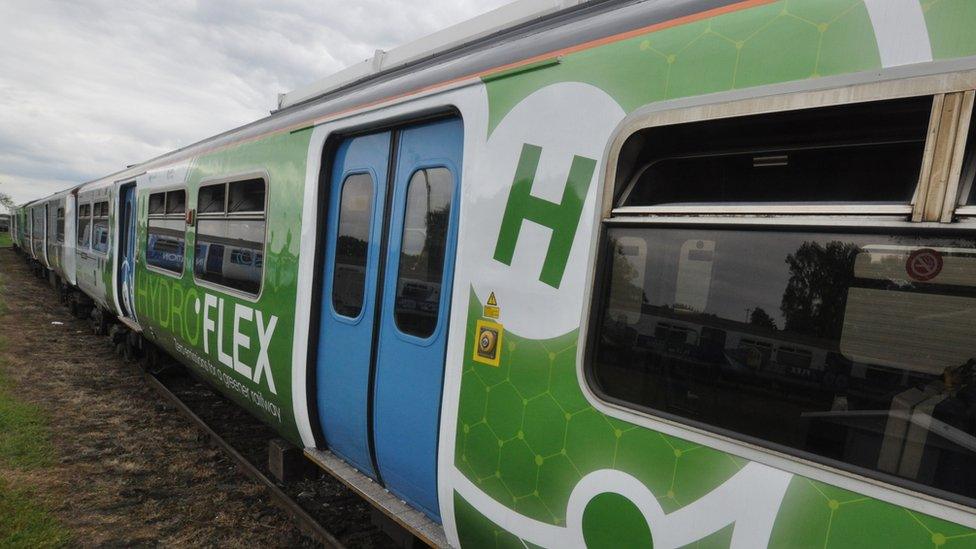Plan for UK long-distance battery-powered trains
- Published

Hitachi Rail has launched a plan to operate trains on batteries, electricity and diesel
Long distance trains could run on battery power for the first time in the UK, a manufacturer has announced.
Hitachi Rail said Great Western Railway services between London Paddington and Penzance, Cornwall, could be powered by a combination of batteries, electricity and diesel.
Using battery power at the route's non-electrified stations will reduce fuel consumption by more than 20%, improve air quality and reduce noise levels.
Testing is expected to begin in 2022.
The line from Cornwall to London is only partially electrified, with the majority of the 300 mile route requiring diesel power.
The 36 intercity express trains used on the line are bi-modes, which switch between electric and diesel power.

There are currently 15 non-electrified stations on the route, such as Exeter St David's
The firm said it would be the first time a long-distance passenger service used an alternative power source in the UK.
It is hoped a full-battery powered intercity train could be developed by the late 2040s, Hitachi Rail added.
Jim Brewin, who leads the firm in the UK and Ireland, said it was "an exciting opportunity to unlock new greener trains for passengers, reduce running costs for operators and cut carbon".
According to latest Office of Rail and Road data, about 38% of Britain's railways are electrified.
Rail Minister Chris Heaton-Harris said: "This is an exciting partnership to develop technology that can make rail travel more sustainable across the UK's network."
Previous projects in South Wales, the Midlands and the Lake District were axed or downgraded by the then-transport secretary in June 2017.
Related topics
- Published30 September 2020

- Published20 June 2019
